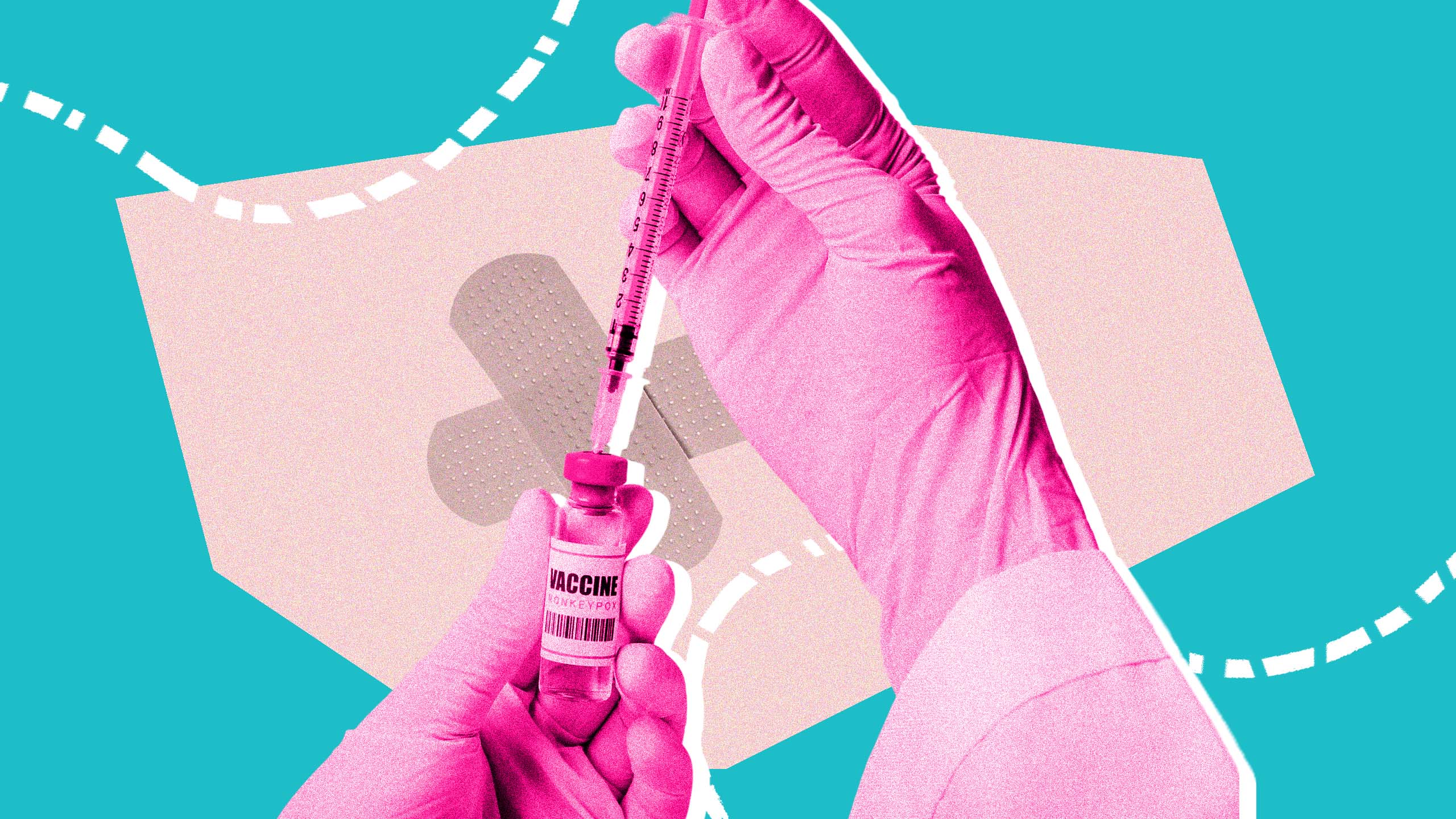New preliminary research shows both the mpox vaccine and the way it’s being administered in the U.S. may not be as effective as previously thought.
The current vaccine regimen being promoted across the U.S. has yielded low levels of mpox antibodies in those who have received two doses. This is ultimately resulting in reduced effectiveness in eliminating the virus, according to research conducted by the Erasmus University Medical Center in the Netherlands. The study was released earlier this month and has not yet been peer-reviewed. Since the findings are preliminary, researchers caution that they “should not be used as guidance in clinical settings.”
Nevertheless, the study raises questions about how well people who’ve had the mpox vaccine are protected against the virus. Though more data and research are needed, Erasmus researchers suggest their findings indicate the vaccine may not provide the adequate immunity to prevent infection. This raises concerns that people who believe they’re protected from mpox will go out into the world without caution and spread the virus.
“One of the questions right now is if vaccines will be the optimal tool to curb the outbreak,” Corine GeurtsvanKessel, one of the study’s authors, told CIDRAP News.
The vaccine that was the focus of the study—known as JYNNEOS in the U.S., Imvamune in Canada and Imvanex in the European Union—is manufactured by the Danish pharmaceutical company Bavarian Nordic and is being widely implemented in various countries.
The Bavarian Nordic vaccine is a newer version of a smallpox vaccine used in the 1980s—the refined version was developed in the early 21st century and it does not cause the same serious side effects as its predecessor (in rare cases, the old vaccine could cause skin necrosis and encephalitis). The current vaccine was first approved for the prevention of both smallpox mpox in 2019 by the Food and Drug Administration (FDA), and was authorized for emergency use in August to combat the current outbreak.
Since then, questions about its effectiveness have been common, since there’s never been a large, clinical study measuring both its ability to stop an infection in an individual and its efficacy in preventing viral spread. Previous tests showed it did stimulate the production of mpox antibodies; however, these tests never showed whether it prevented infection or reduced the disease’s effects in an infected person.
The ambiguity surrounding the vaccine’s effectiveness isn’t helped by the varied quality of results seen in the current outbreak. Last month in the U.K., healthcare officials attributed the vaccine to a decline in cases—following a quick rollout, the number of daily cases dropped to around 20, down from 35. At the same time, however, there have been breakthrough cases—a report conducted in France found that, out of 257 individuals vaccinated with the Bavarian Nordic vaccine, 12 experienced a breakthrough infection.
The Erasmus study has also raised concerns about the efficiency of fractional dosing of the vaccine. This dosing technique involves administering a fraction of the recommended dosage of vaccine, but injecting it in a way where it would still produce the same level of protection that a full amount would.
This technique—also known as the “intradermal” approach—entails injecting a fifth of the normal amount into the upper layer of the skin, as opposed to the standard method of injecting the full amount into the layer of fat underneath the skin. In response to a recent shortage of vaccines in the U.S., many doctors have switched to the intradermal approach.
Fractional dosing has been effective with other vaccines for other diseases, like the yellow fever and polio vaccines, and the decision to approve its use for the Bavarian Nordic vaccine was based on a 2015 study that found that two intradermal doses of it had the exact same effect as two normal ones. The Erasmus study, however, produced different results, showing that fractional doses produced fewer antibodies and led to weaker protection.
“The vaccinated individual is not fully protected.”
Dr. Oladele Ogunseitan, a population health and disease prevention professor and UC Irvine’s University of California Presidential Chair, isn’t surprised that fractional dosing of the Bavarian Nordic vaccine has been found to be a risky strategy. Ogunseitan, who was not part of the Erasmus study, says these preliminary findings could raise public health concerns.
“The ‘vaccinated’ individual is not fully protected, and their subsequent behaviours may be based on false assumptions of protection, which could put others at risk,” he told Xtra in an email.
Nina Schwalbe, a public health researcher who is on the faculty of Columbia University’s Mailman School of Public Health and has worked for Unicef and USAID, emphasized the need for more testing. While rolling out the vaccine, governments should’ve simultaneously studied the effectiveness of fractional dosing, she said, something that currently isn’t being done in the U.S. One way this could’ve been done is by requesting vaccinated people to come back for follow-ups and measuring how well the vaccine had prevented infection in their bodies.
“Without that widespread, frequent testing and data, any observation is simply anecdotal,” she told Xtra.
Though further research is needed to entirely prove any ineffectiveness in both the vaccine and fractional dosing, doctors and researchers agree that vaccinated people should still practise caution, especially considering the number of breakthrough cases.
Beyond just receiving vaccines, Ogunseitan stressed the need for individuals to be as “hygienic as possible” and for governments to invest more in public education and countering misinformation. Schwalbe said that people should be practising safer sex, a recommendation echoed by the Centers for Disease Control and Prevention and the Canadian government.
A major factor in prevention should also be prioritizing global health equity. Though this is the first time the virus is being seen in regions like the U.S. and the U.K, it’s been circulating in Africa for decades: Africans have not received donations of the vaccine to fight it off, and, for years, have given unheeded warnings about possible global outbreaks. Doctors believe that if eradicating the virus had been made a priority in the continent years ago, the current outbreak wouldn’t have occured.
“We need to recognize that there are no secure national boundaries against infectious diseases, and international co-operation and collaboration are essential for national protection,” Ogunseitan emphasized.


 Why you can trust Xtra
Why you can trust Xtra


